Should I break up with my GP? Four signs that it may be time
Powered by WPeMatico
Powered by WPeMatico
Powered by WPeMatico
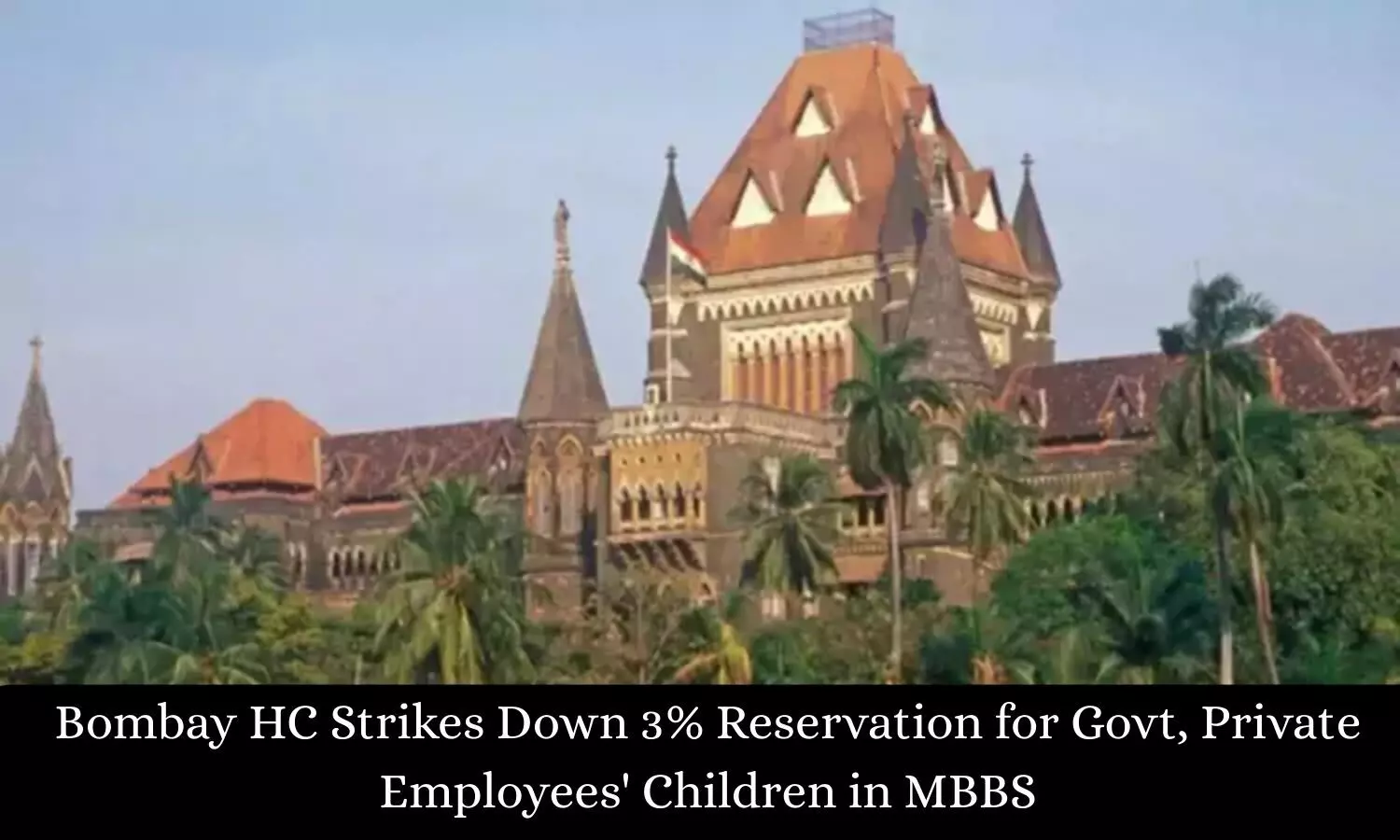
The Bombay High Court recently quashed the reservation of 3 percent seats in favour of Children of Central and State Government Employees and Persons in Private Occupations, granted under Clause 5.7 of the prospectus issued by the Director of Technical Education, Goa.
While considering the plea filed by an MBBS aspirant, who challenged the provision, the HC Division Bench comprising Justices Bharati Dangre and Nivedita P. Mehta quashed the reservation provided in the said clause.
For more details, check out the full story on the link below:
MBBS: Bombay HC quashes 3 percent reservation for Children of Govt, private employees
Powered by WPeMatico
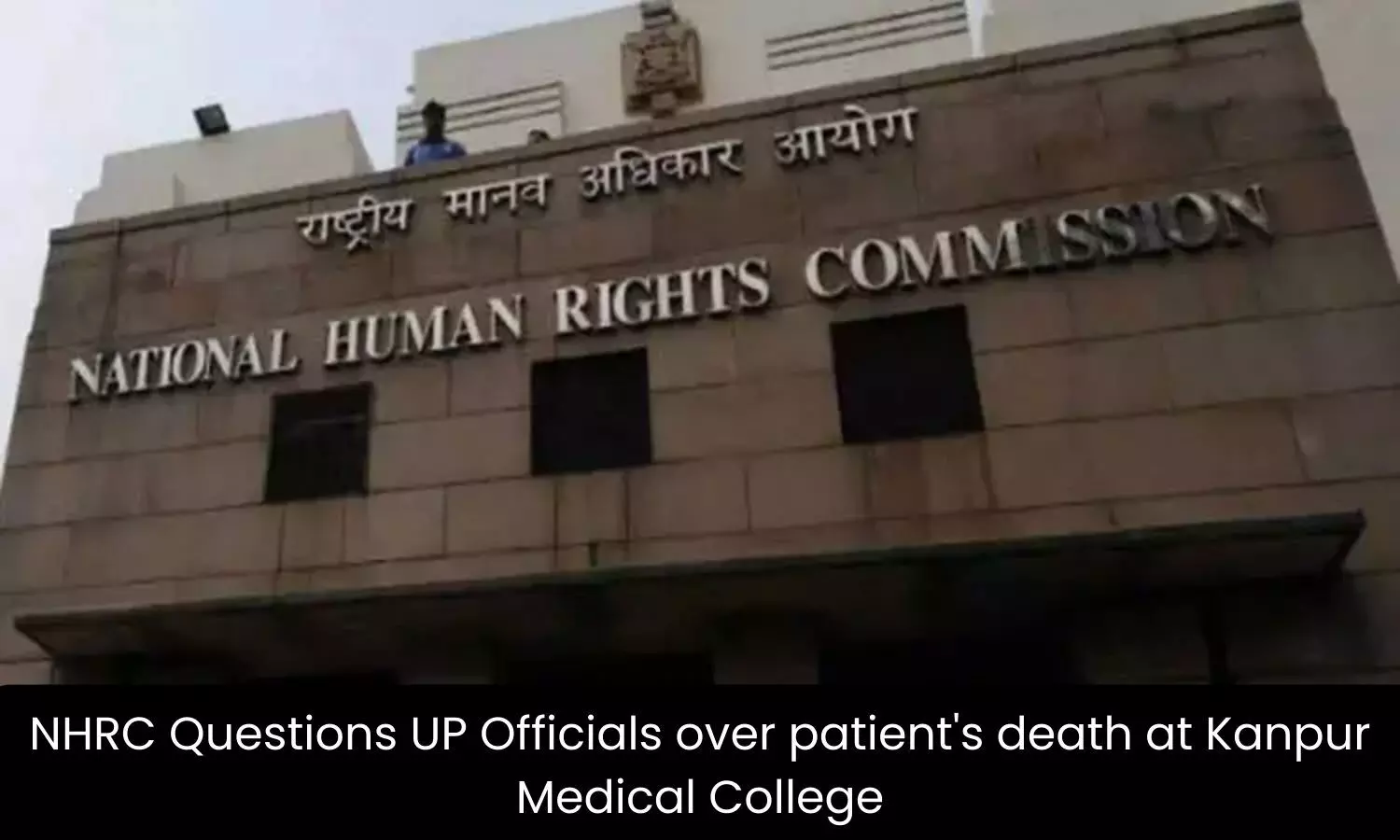
Taking suo motu cognisance of a media report highlighting the death of a patient due to a lack of proper treatment at Kanpur Dehat Medical College, the National Human Rights Commission (NHRC) has issued notices to the Chief Secretary and the Director General of Police, Uttar Pradesh, seeking a detailed report within two weeks.
The media report stated that a 25-year-old patient died allegedly due to mismanagement by the hospital and police personnel, as well as a lack of proper treatment at the medical college, as he was left unattended.
For more details, check out the full story on the link below:
NHRC issues notice to UP Govt over patient’s death at Kanpur Medical College
Powered by WPeMatico

Indore: A man posing as a doctor has been booked by Indore police following the death of a 45-year-old patient at an unauthorised clinic. An investigation has revealed that the quack possessed neither a medical degree nor valid registration with any state or national medical council.
The accused had reportedly been running a clinic under the name “Patel Medical and Clinic” in the Hawa Bangla area for several years, falsely posing as a qualified medical professional.
According to the news reports, the case came to light after Aarti Palwar and her mother-in-law, Kusum Palwar, approached a public hearing forum, alleging that Shyam Palwar died on May 22, 2024, as a result of improper treatment administered by Patel.
Following the incident, angry family members created a ruckus at the clinic, prompting authorities to initiate an inquiry.
Also Read: Fake doctor caught duping patients at North Bengal Medical College
Chief Medical and Health Officer (CMHO) Dr. Madhav Prasad Hasani ordered a detailed investigation into the matter. The inquiry committee found that the doctor had no formal medical education, degree, or registration with any recognised medical council.
The committee concluded that the doctor had been illegally prescribing medicines and offering treatments, claiming to practice modern medicine. It also held that the death of Shyam Palwar was a direct result of the doctor’s unauthorised and unsafe medical practices.
On the basis of the inquiry report, Dr. Ajay Gupta, Zonal Medical Officer of Malharganj, filed a complaint with the local police. An FIR was registered against the doctor under multiple sections of the Madhya Pradesh Medical Establishments Act and the Medical Council Act for practising medicine without a valid license.
Also Read: Fake BAMS doctor arrested in abortion racket
Officials warn of strict measures. CMHO Dr. Hasani stressed that such cases put public health at grave risk and assured that the strictest legal action would follow. The administration also appealed to citizens to remain alert and immediately report any unqualified practitioners operating in their locality, reports Bhaskar English.
Powered by WPeMatico
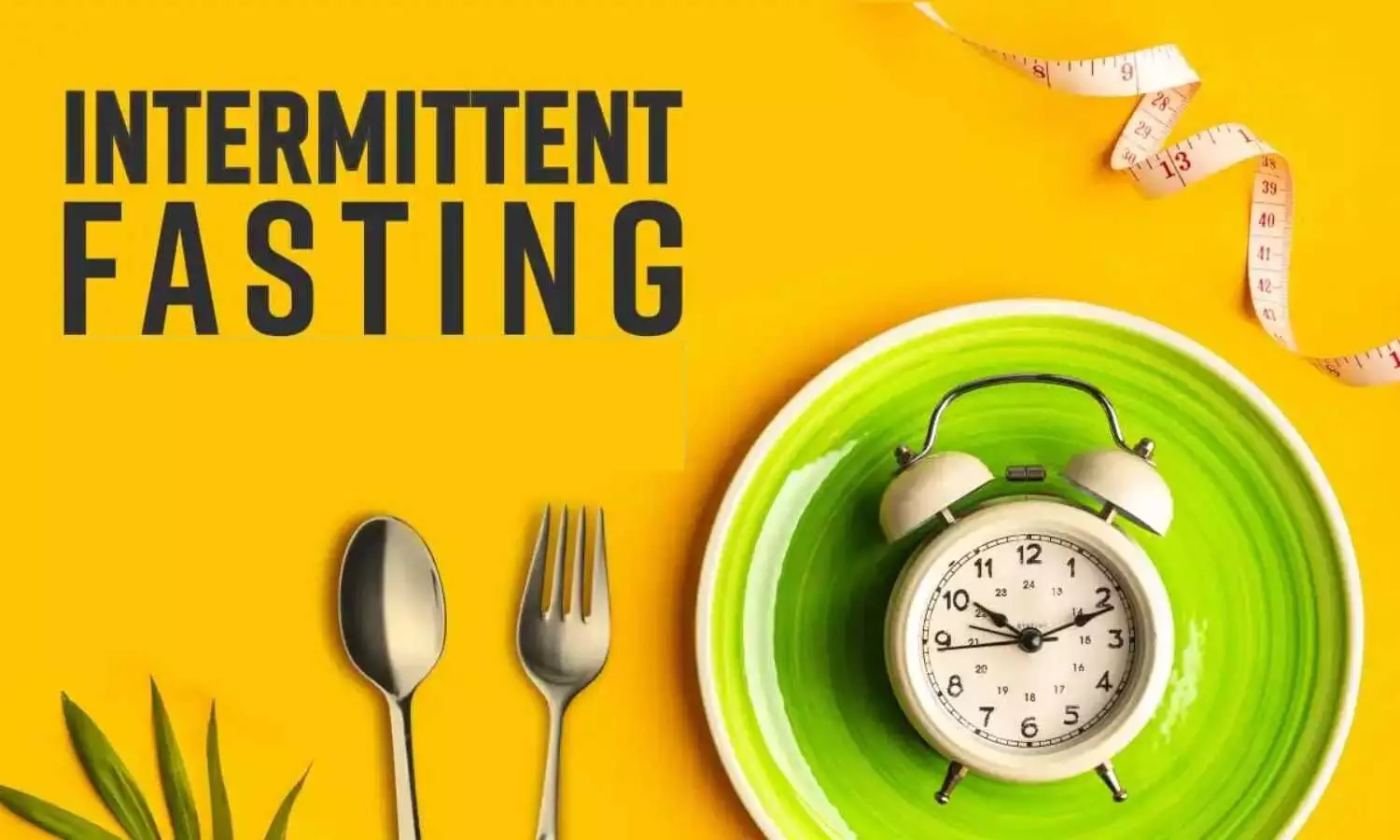
China: A new study published in Diabetes & Metabolic Syndrome: Clinical
Research and Reviews has raised safety concerns over very short time-restricted
eating patterns. The research, led by Victor W. Zhong and colleagues from Shanghai
Jiao Tong University School of Medicine, found that consuming all meals within
an eight-hour window was associated with a significantly higher risk of
cardiovascular mortality compared to a standard eating duration of 12–14 hours.
“Eating duration of less than eight hours was linked to
135% higher cardiovascular mortality, but was not associated with all-cause and
cancer mortality,” the study stated.
The findings challenge the widely held notion that
intermittent fasting and extreme time-restricted eating offer uniform health
benefits. While such dietary practices have shown short-term advantages for
weight loss and metabolic health in earlier trials, their long-term safety
remains uncertain.
Senior author of the paper, Victor Wenze Zhong, states.
“Our study provides the first evidence that individuals adhering to a less than 8-hour eating window were more likely to die from cardiovascular disease compared to people who followed a typical eating window of 12-14 hours. Although our observational results are subject to residual confounding, people should be extremely cautious to adopt a short eating window for a long time (e.g., over years) to pursue cardiovascular health or longevity, which has no evidence to support from human studies to date”.
Researchers analyzed data from 19,831 adults enrolled in the
National Health and Nutrition Examination Survey (NHANES) between 2003 and
2018, with mortality follow-up until December 2019. Participants reported usual
intake based on two valid 24-hour dietary recalls. Eating duration was grouped
into categories: less than 8 hours, 8–10 hours, 10–12 hours, 12–14 hours
(reference), more than 14–16 hours, and more than 16 hours.
The study led to the following findings:
The authors emphasized the need for further research to
determine whether the elevated cardiovascular risk is directly attributable to
shorter eating durations or confounded by related factors such as diet quality,
lifestyle behaviors, and underlying health conditions.
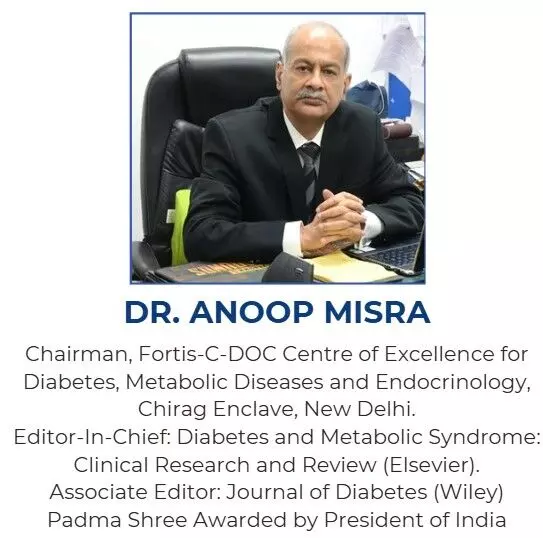
Commenting on the findings, Dr. Anoop Misra, Chairman of
Fortis-C-DOC and Editor-in-Chief of the journal, stressed caution in adopting
extreme fasting patterns. “This study serves as an important safety signal
against the routine use of very short eating windows. Although intermittent
fasting can provide modest metabolic benefits, an eating window of less than
eight hours should not be considered universally safe,” Dr. Misra noted.
He explained possible biological mechanisms behind the
association, including increases in LDL cholesterol, sympathetic activation,
and elevated cortisol levels, which may collectively worsen cardiovascular
risk. Behavioral factors such as skipping breakfast and poor diet quality could
further contribute to harm.
According to Dr. Misra, clinicians should recommend a
balanced and individualized approach. He suggested avoiding eating windows
shorter than 8 hours, especially for those with heart disease, uncontrolled
hypertension, diabetes, pregnancy, frailty, or eating disorders. If
time-restricted eating is considered, a 10–12-hour window earlier in the day is
preferable. Emphasizing diet quality, adequate protein, fiber-rich foods,
healthy fats, and avoiding highly processed foods are also crucial. Regular
monitoring of blood pressure, lipid profile, glucose, weight, and any new
symptoms is advised.
He also cautioned that in regions like India, where
cardiovascular risk is already high and fasting is commonly practiced without
medical guidance, professional supervision is crucial. Dr. Misra called for
randomized controlled trials comparing different eating windows, as well as
studies evaluating effects in diverse populations, particularly in South Asia.
Until then, time-restricted eating can be considered for weight and metabolic
benefits, but only under medical guidance and without extreme restrictions.
“Intermittent fasting is a promising tool in our dietary arsenal and low cost and simple too, but enthusiasm should be tempered with careful risk assessment. Until more long-term data are available, especially on hard outcomes like cardiovascular events (e.g. heart attacks), intermittent fasting should be individualized and ideally supervised, particularly for people with pre-existing health conditions, and applied for short-term only.,” Dr. Misra concluded.
Reference:Chen, M., Xu, L., Van Horn, L., Manson, J. E., Tucker, K. L., Du, X., Feng, N., Rong, S., & Zhong, V. W. (2025). Association of eating duration less than 8 h with all-cause, cardiovascular, and cancer mortality. Diabetes & Metabolic Syndrome: Clinical Research & Reviews, 103278. https://doi.org/10.1016/j.dsx.2025.103278
Powered by WPeMatico
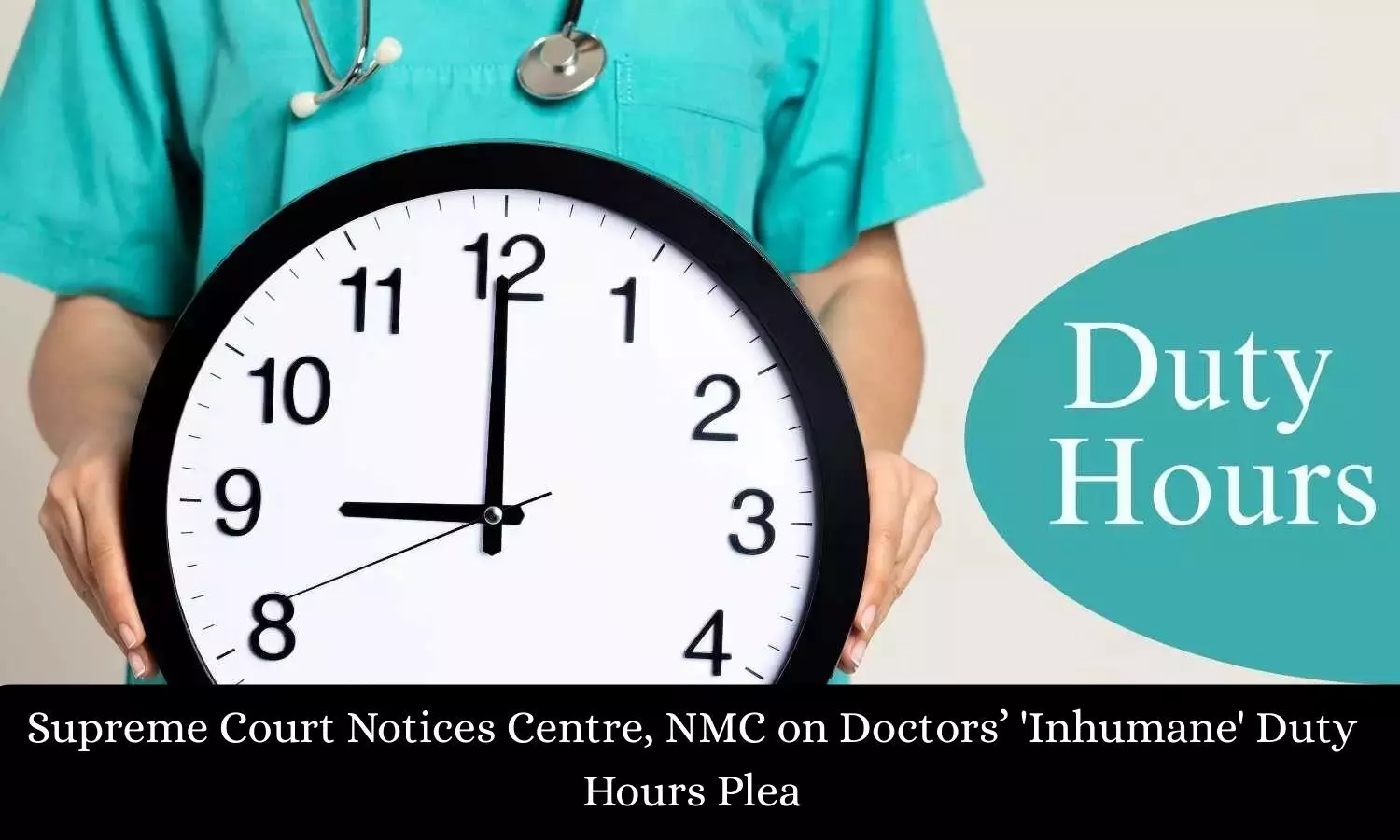
The Supreme Court bench comprising Justices M.M. Sundresh and Nongmeikapam Kotiswar Singh today, i.e., on 22.08.2025, issued notice to the Union Government and the National Medical Commission (NMC) on the plea filed by doctors’ body challenging the ‘inhuman’ working hours of resident doctors.
Medical Dialogues had earlier reported that the doctors under the United Doctors’ Front (UDF) had filed a Public Interest Litigation (PIL) in the Supreme Court against the “inhumane working hours of resident doctors”. The association has challenged the “exploitative and unconstitutional working conditions imposed on resident doctors across the country”.
For more details, check out the full story on the link below:
Supreme Court Issues Notice to Centre, NMC on Plea against ‘Inhumane’ Duty Hours for Doctors
Powered by WPeMatico
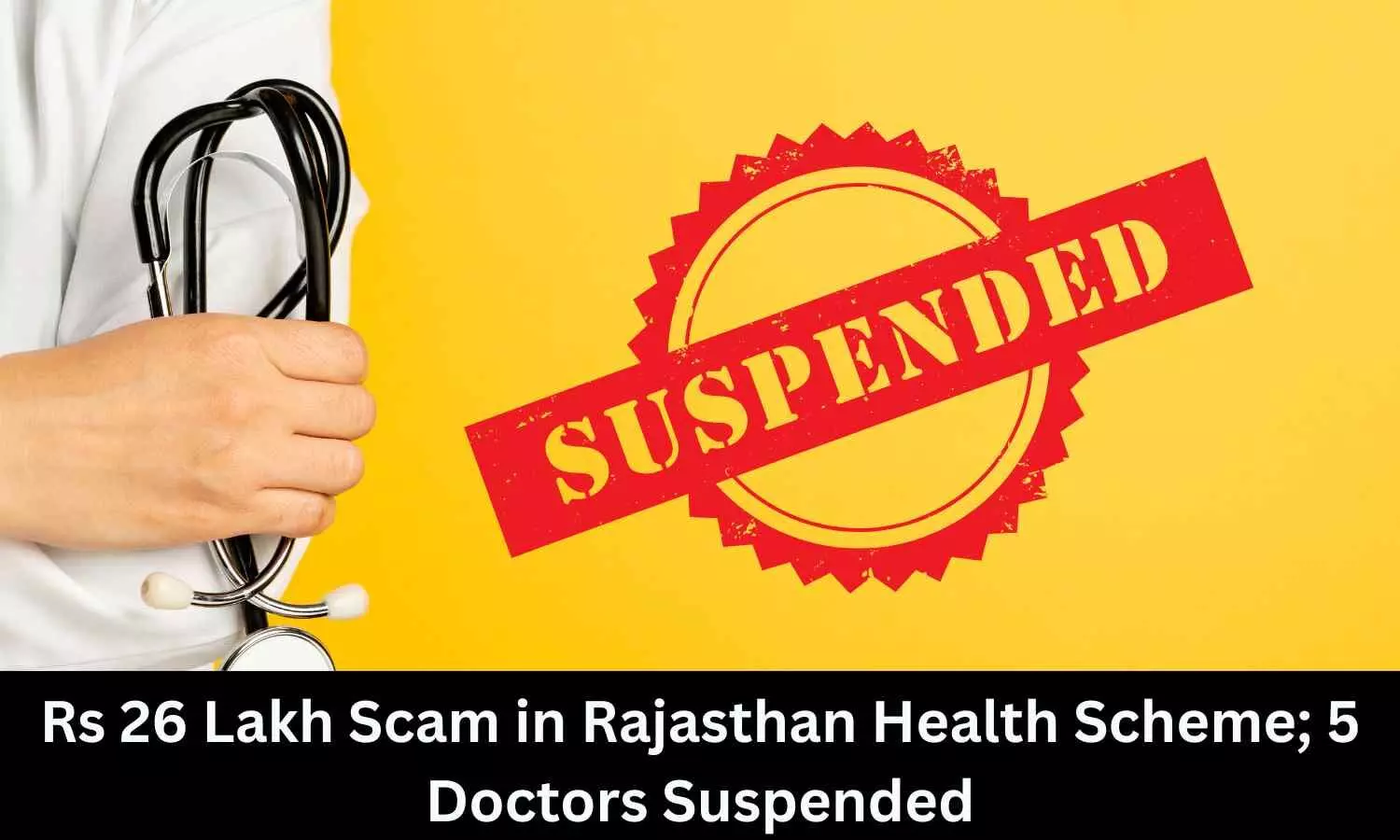
A shocking fraud and alleged irregularities in the Rajasthan Government Health Scheme (RGHS), the state’s flagship programme, has led to the suspension of nine individuals, two Ayurveda doctors, three allopathy doctors and four government employees for allegedly misusing a beneficiary’s health card to claim fake medical treatments and benefits worth around Rs 26 lakh.
In connection with the case, an FIR has also been registered against Mittal Hospital, Rajasthan Pensioners Association Medical Store in Alwar, three doctors, and the scheme cardholder.
The fraud involved fabricating treatment records and prescriptions to siphon off funds from the government health scheme. The accused allegedly colluded to create false prescriptions and used a single beneficiary card to generate fake OPD slips, claiming the amount within a single year.
For more details, check out the full story on the link below:
Rs 26 lakh scam hits Rajasthan Health Scheme; 5 doctors among 9 suspended
Powered by WPeMatico

Here are the top health stories of the day:
NHRC takes cognizance of patient’s death at Kanpur Medical College
Taking suo motu cognisance of a media report highlighting the death of a patient due to a lack of proper treatment at Kanpur Dehat Medical College, the National Human Rights Commission (NHRC) has issued notices to the Chief Secretary and the Director General of Police, Uttar Pradesh, seeking a detailed report within two weeks.
The media report stated that a 25-year-old patient died allegedly due to mismanagement by the hospital and police personnel, as well as a lack of proper treatment at the medical college, as he was left unattended.
For more details, check out the full story on the link below:
NHRC issues notice to UP Govt over patient’s death at Kanpur Medical College
Bombay HC quashes 3% Reservation for Govt, Private Employees’ Children in Goa Medical Colleges
The Bombay High Court recently quashed the reservation of 3 percent seats in favour of Children of Central and State Government Employees and Persons in Private Occupations, granted under Clause 5.7 of the prospectus issued by the Director of Technical Education, Goa.
While considering the plea filed by an MBBS aspirant, who challenged the provision, the HC Division Bench comprising Justices Bharati Dangre and Nivedita P. Mehta quashed the reservation provided in the said clause.
For more details, check out the full story on the link below:
MBBS: Bombay HC quashes 3 percent reservation for Children of Govt, private employees
Supreme Court Notice to Centre, NMC on Doctors’ Inhumane Duty Hours Plea
The Supreme Court bench comprising Justices M.M. Sundresh and Nongmeikapam Kotiswar Singh today, i.e., on 22.08.2025, issued notice to the Union Government and the National Medical Commission (NMC) on the plea filed by doctors’ body challenging the ‘inhuman’ working hours of resident doctors.
Medical Dialogues had earlier reported that the doctors under the United Doctors’ Front (UDF) had filed a Public Interest Litigation (PIL) in the Supreme Court against the “inhumane working hours of resident doctors”. The association has challenged the “exploitative and unconstitutional working conditions imposed on resident doctors across the country”.
For more details, check out the full story on the link below:
Supreme Court Issues Notice to Centre, NMC on Plea against ‘Inhumane’ Duty Hours for Doctors
5 Doctors Suspended over irregularities in Rajasthan Health Scheme
A shocking fraud and alleged irregularities in the Rajasthan Government Health Scheme (RGHS), the state’s flagship programme, has led to the suspension of nine individuals, two Ayurveda doctors, three allopathy doctors and four government employees for allegedly misusing a beneficiary’s health card to claim fake medical treatments and benefits worth around Rs 26 lakh.
In connection with the case, an FIR has also been registered against Mittal Hospital, Rajasthan Pensioners Association Medical Store in Alwar, three doctors, and the scheme cardholder.
The fraud involved fabricating treatment records and prescriptions to siphon off funds from the government health scheme. The accused allegedly colluded to create false prescriptions and used a single beneficiary card to generate fake OPD slips, claiming the amount within a single year.
For more details, check out the full story on the link below:
Rs 26 lakh scam hits Rajasthan Health Scheme; 5 doctors among 9 suspended
Powered by WPeMatico
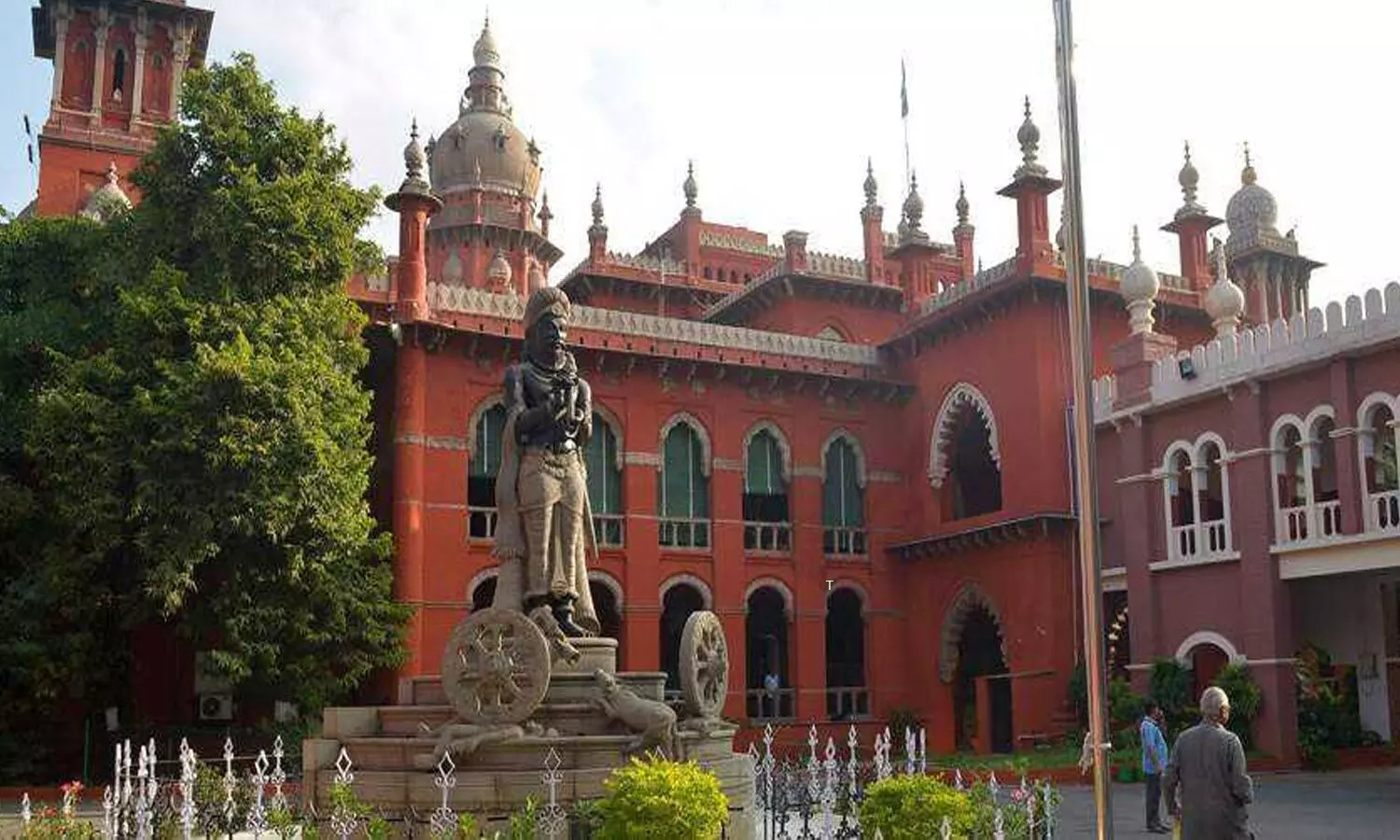
Madurai: Upholding an order passed by a single judge granting relief to a differently-abled Siddha practitioner belonging to a Scheduled Caste community by directing the government to appoint him to the post of Assistant Medical Officer (Siddha), the Madurai Bench of the Madras High Court dimissed the appeal stating that it found no infirmity in the order passed by the single bench.
While hearing the appeal preferred by the Medical Services Recruitment Board (MSRB) challenging the 2023 order, the division bench comprising Justices J Nisha Banu and S Srimathy observed that the petitioner, Dr. P Palavesakumar, should be given the appointment since the board had wrongly applied the reservation policy and clubbed all differently-abled candidates into a single category.
The case pertains to Dr. Palavesakumar, who completed his MD (Siddha), applied in 2017 for the post of Assistant Medical Officer (Siddha) when the MSRB issued a recruitment notification. He secured 57 marks out of 100 in the written exam but was not selected.
Also read- Kidney Transplant Racket: State submits action taken report to Madras HC
Challenging the provisional selection list, he approached the High Court’s Madurai Bench in 2017. During the final hearing, he restricted his relief, and in 2019, the court directed the authorities to consider his claim whenever a vacancy was available.
However, when his request was later considered, it was rejected because the selection process had been carried out properly. Against this rejection and the provisional selection list, Dr. Palavesakumar filed another petition in 2020.
The single bench, while hearing this plea, found that meritorious Scheduled Caste candidates, who should have been accommodated in open category vacancies, were instead adjusted against reserved vacancies. The court held that such an approach was “nothing but illegal” and noted that the MSRB had wrongly applied the special reservation policy. The bench, therefore, directed the government to appoint Dr. Palavesakumar as Assistant Medical Officer (Siddha) against the existing general vacancy in February 2023, reports TOI.
“The recruiting agency ought to have applied the 4% horizontal reservation policy meant for differently-abled candidates against each vertical (social reservation quota) category. Though there are other SC candidates who also qualify if the correct method is applied, only the petitioner has approached the court,” said the Single Bench as reported by TNIE.
Challenging this decision, the MSRB preferred an appeal in 2024. The division bench, however, upheld the single judge’s ruling, observing that the board had clubbed all differently-abled candidates into one slot and failed to follow proper reservation rules.
“The single judge had elaborately dealt with the contentions of the appellant and had rightly directed the appointment of Palavesakumar as assistant medical officer (siddha) against the existing general vacancy. The court did not find any infirmity in the order passed by the single bench,” observed the division bench. It concluded that Dr. Palavesakumar was entitled to the appointment and dismissed the appeal.
Also read- Madras HC allows doctors to Join Super Speciality Course, Finish Bond Terms Later
Powered by WPeMatico
